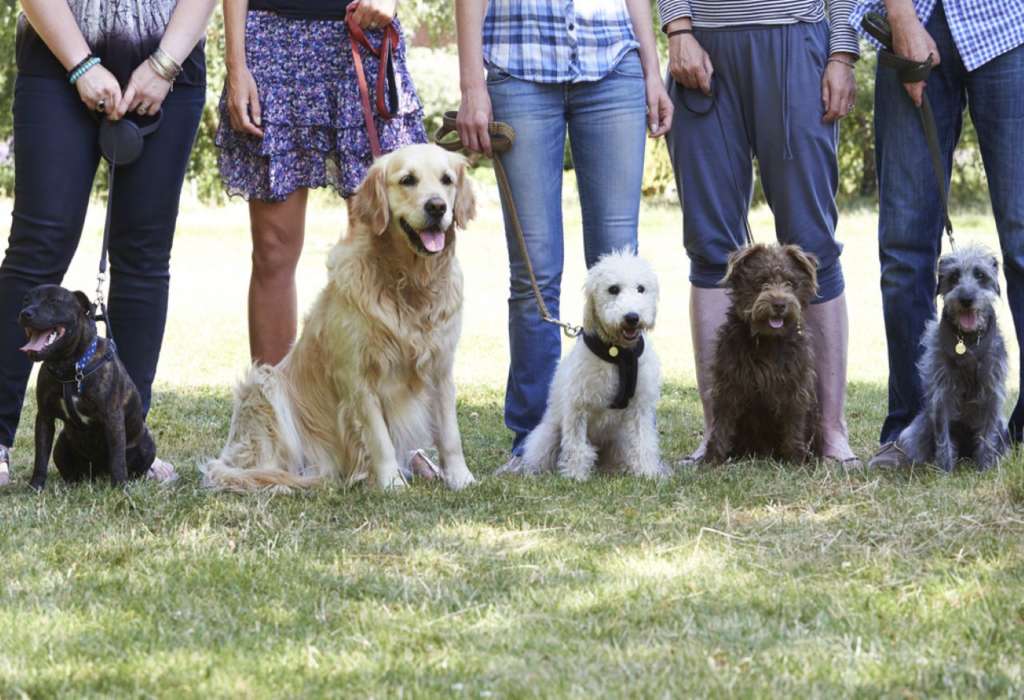Considering a Dog Behaviourist Course?
If you want to gain a greater understanding of man’s best friend, a dog behaviourist course may be perfect for you. The course is suitable for those looking to become a responsible owner and those already working with dogs who want to enhance their skills. The course will equip you with knowledge about canine psychology, senses and behaviour as well as basic dog and obedience training techniques. Invaluable information will be on offer for anyone who owns dogs, works with dogs currently or plans to work with dogs in the future. There are tons of dog behaviourist courses currently available. Courses are available in full-time, part-time and evening class options, making learning about dog behaviour accessible for all.
What is a Dog Behaviourist?
A dog behaviourist is someone who works in changing or modifying behaviour in dogs. They can be experienced dog handlers, who have developed their experience over many years of hands-on experience, or have formal training up to degree level. Dog behaviourists can help owners to find solutions to aggressive behaviour, reactivity ie. Barking and lunging on the lead, resource guarding ie guarding items, separation anxiety, destructive behaviour and they also do behavioural and temperament assessments.
The Difference Between a Dog Trainer and a Dog Behaviourist
There is a lot of confusion out there about the difference between a dog trainer and a dog behaviourist and it is essential that you know the differences before you apply for a dog behaviourist course. The reality is there are many different titles used for people who work with dog training and behaviour. Most of them deal with both dog behaviour and training because the two go hand-in-hand. However, not all are equipped to handle major behaviour issues. Dog trainers train dogs to perform specific actions or tasks. They also teach dogs not to certain things.
Some trainers will work with problem behaviours, even delving into the behaviourist side of things. However, a good trainer knows their limits and if necessary, will refer you to someone better equipped to deal with the issue. On the other hand, dog behaviourists focus on shaping behaviours in dogs and generally work with dogs who display behaviour problems. They can recognise why and how your dog’s behaviour is abnormal, and can effectively teach you how to work with and understand your dog. Good dog behaviourists are experts in behaviour modification and also deeply understand the normal behaviour of dogs. They spend a lot of time speaking to owners about how they interact with their dogs. They are not trainers but are often able to provide advice about training.
What Will I Learn?
You will gain an understanding of how canine animals communicate and think, explore the behavioural development of puppies and learn the basic concepts behind dog training and how they can be applied to different situations. Students will explore how to control the movement of dogs through training and other methods and discover the roles of working dogs, and how they can be trained. Nature and scope of canine psychology, canine senses and communication and understanding natural canine behaviour will also be explored. The course will educate you on canine behavioural development, canine behavioural disorders and basic dog training principles. Additionally, learners will explore obedience dog training, controlling a dog’s movement and dog training for working environments.
Career Opportunities
After completing your dog behaviourist course, you can expect to be able to find employment as a dog behaviourist, a pet shop staff member, an animal trainer and a dog groomer. There is also the opportunity to set up your own business and work within veterinary clinics.
Course Progression
If you completed your dog behaviourist course and found you really enjoyed it, there is always room to progress. You could go on to study dog grooming, dog training, animal science or veterinary.
If you’re serious about doing a dog behaviourist course, check out courses near you in the Nightcourses.co.uk national course finder.


